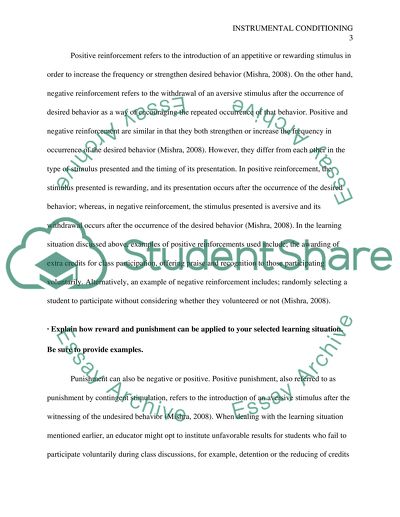Instrumental Conditioning Paper Research Example | Topics and Well Written Essays - 750 words. Retrieved from https://studentshare.org/psychology/1456129-instrumental-conditioning-paper
Instrumental Conditioning Paper Research Example | Topics and Well Written Essays - 750 Words. https://studentshare.org/psychology/1456129-instrumental-conditioning-paper.


